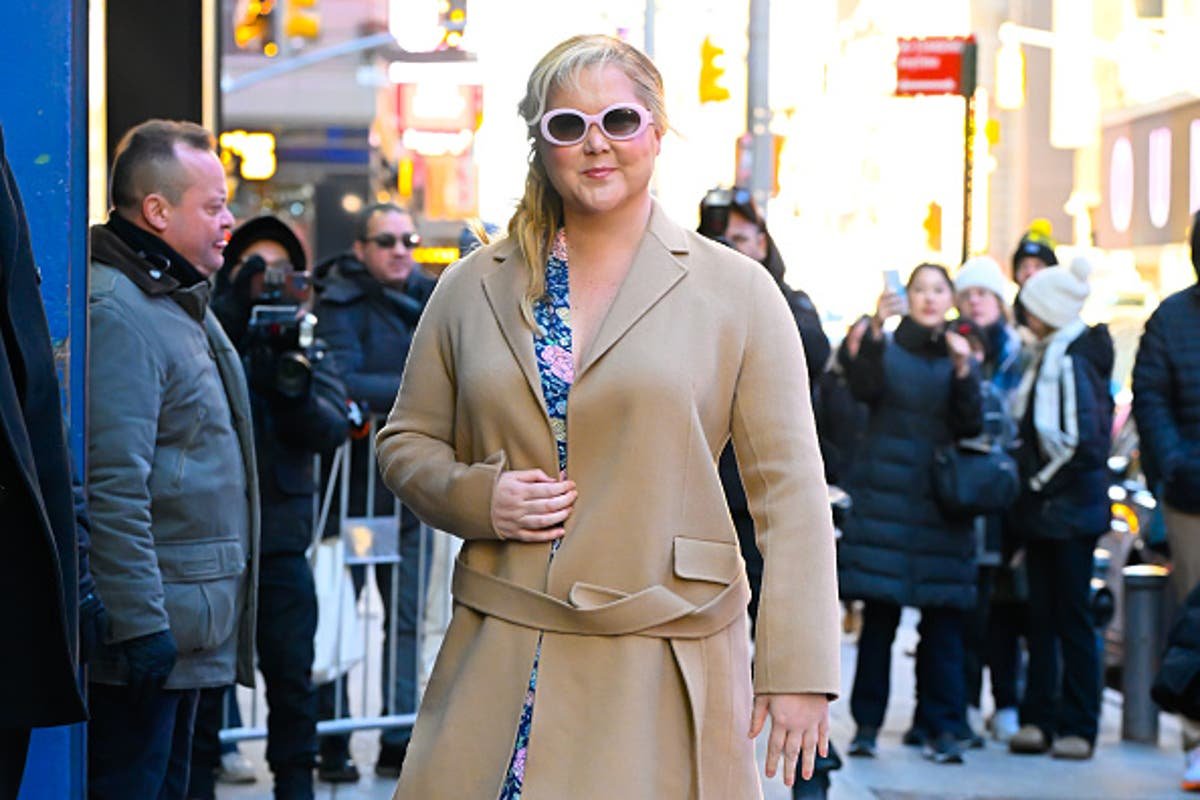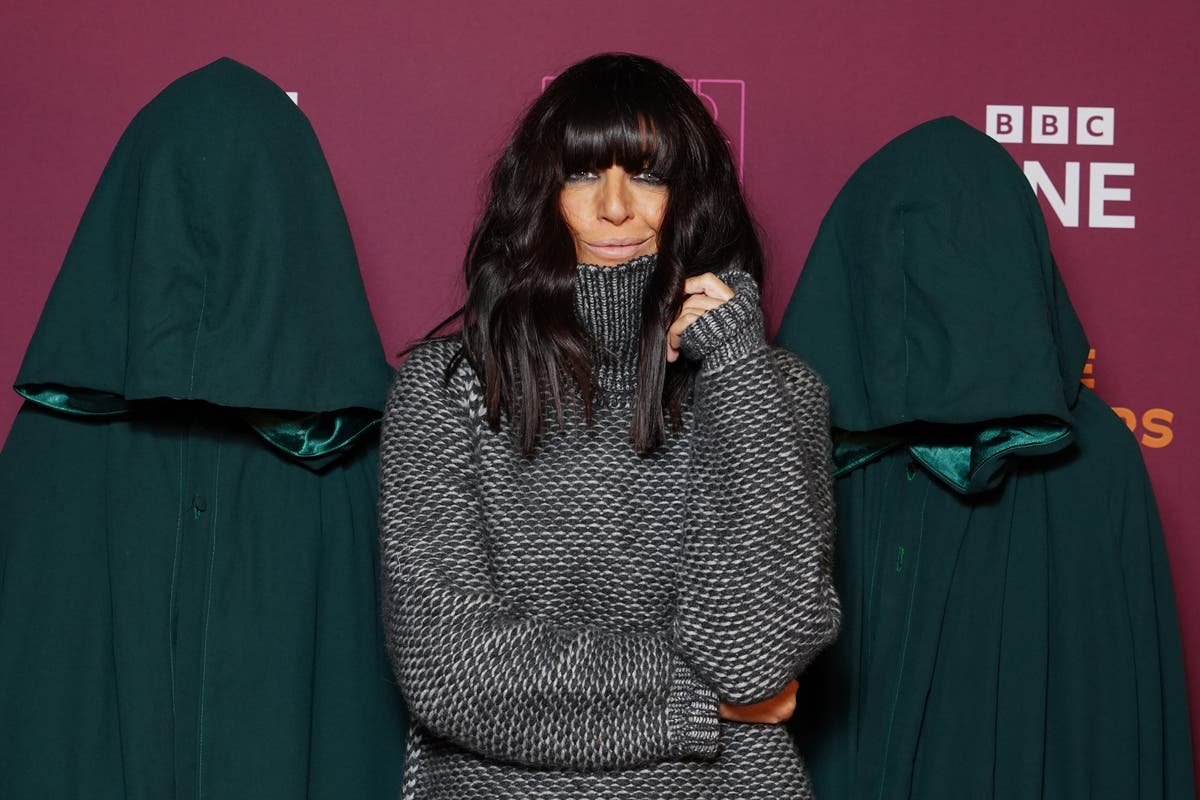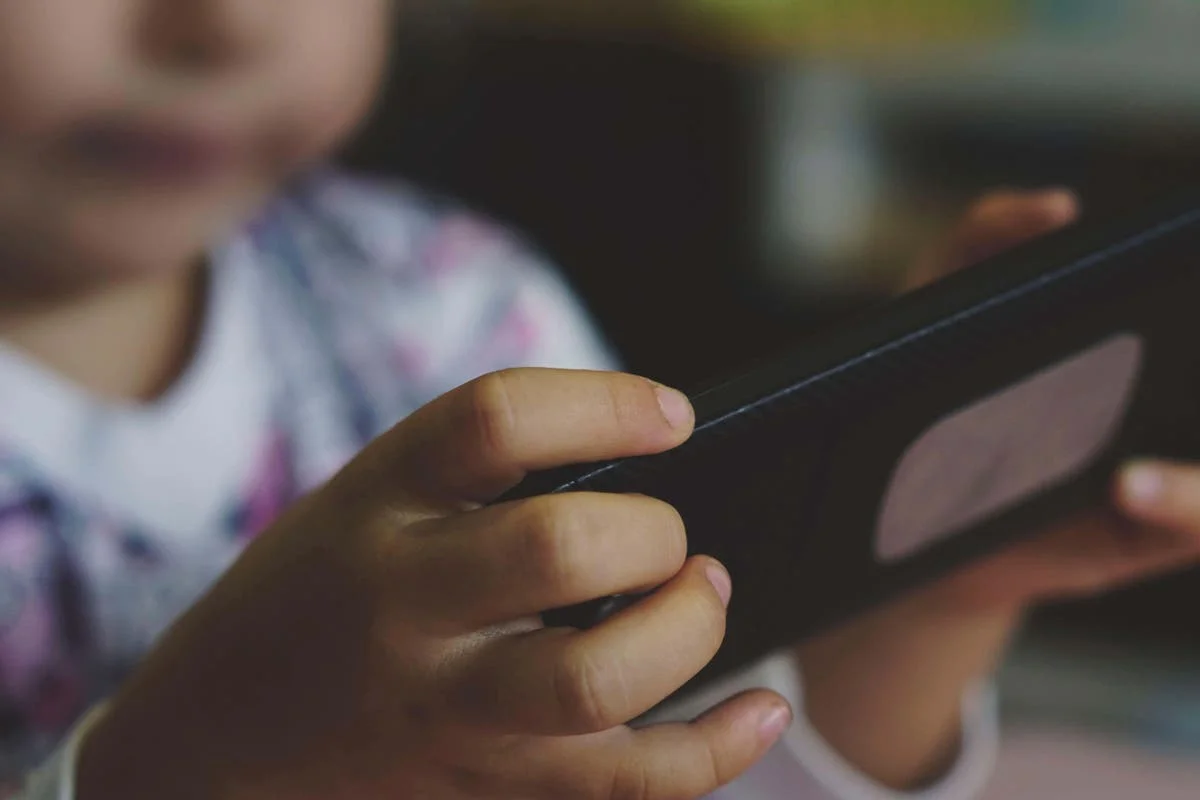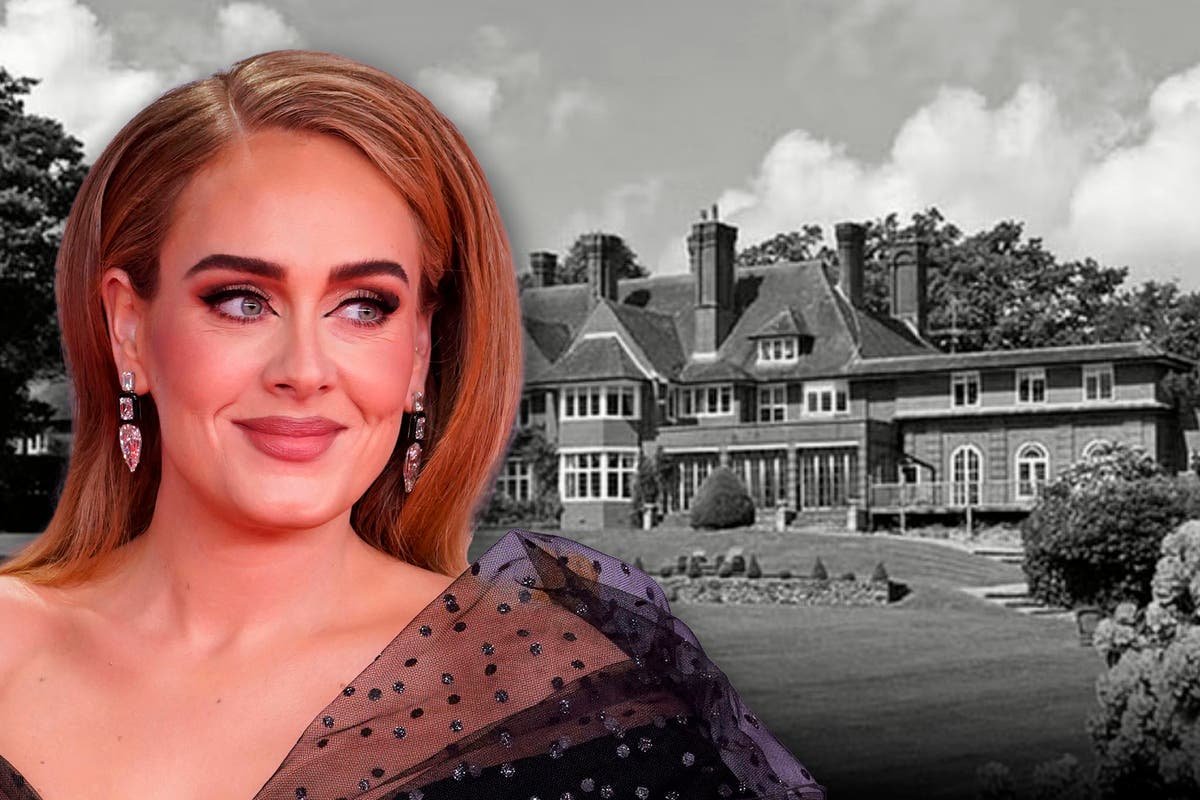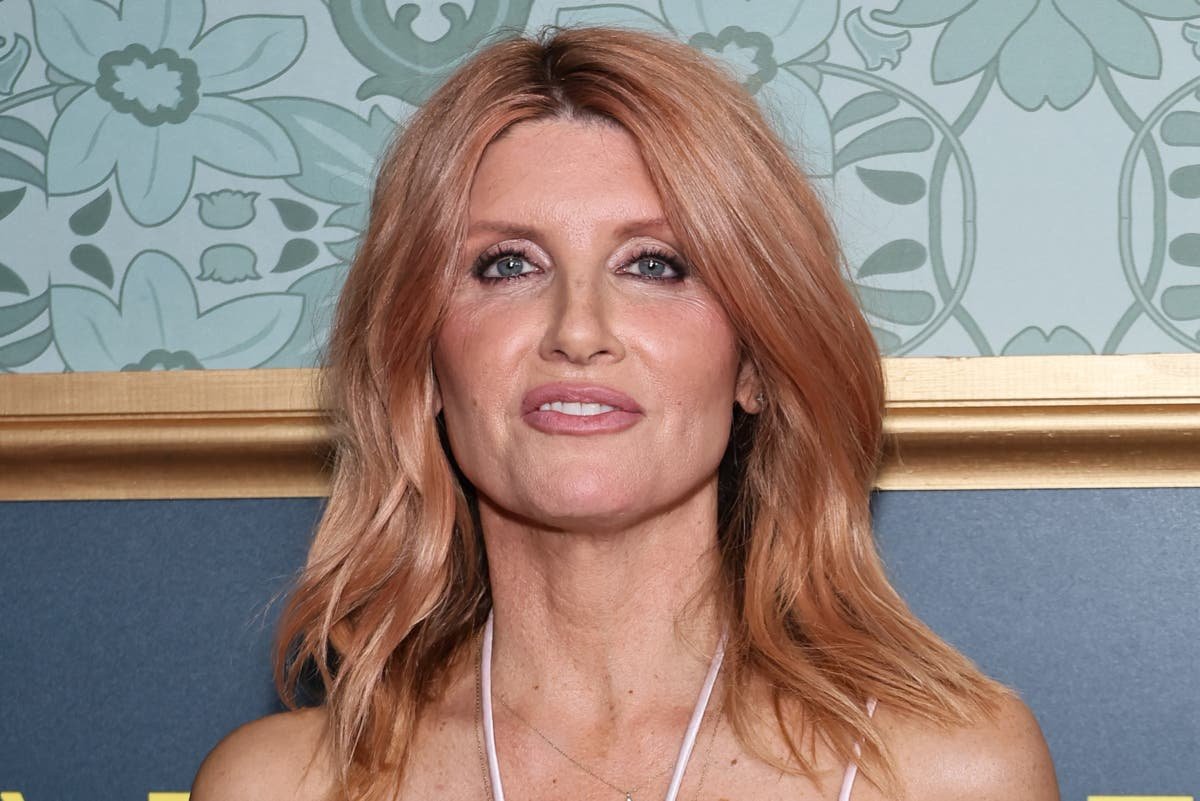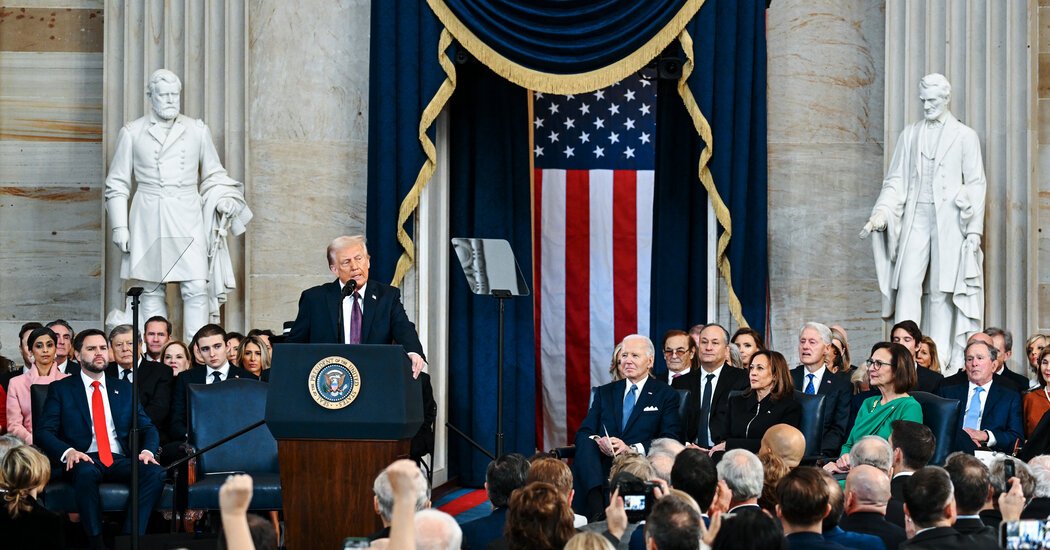
Trump Returns, and So Does His TV Spectacle
Donald J. Trump has always tried to choose his own stage settings, be it looming over a built-for-TV boardroom in “The Apprentice” or descending down the Trump Tower escalator in 2015. For his second inauguration, nature did the choosing for him: Subfreezing weather in Washington prompted the event to move indoors, to the Rotunda of the U.S. Capitol.
With the ceremony moved from a massive public mall to an intimate chamber, TV was even more than usual the best means for most of us to secure a ticket. A traditional outdoor ceremony doesn’t just allow more citizens to attend; it creates the theater of openness. The incoming president meets the people under the wide sky; the crowd provides a backdrop and a collective response — the symbol, at least, of the people’s democratic voice.
The inauguration ceremony on Monday, held before a select crowd in the ornate and hushed chamber, felt more like a celebrity wedding (or funeral) or a black-tie gala, a small V.I.P. event that the masses could glimpse only through TV’s window.
This feeling of exclusivity was underscored by the who’s who of guests (Joe Rogan! Jake Paul!), whom the cameras picked out as if on a red carpet. The dais in the Rotunda was dotted with billionaire tech and media moguls, including Jeff Bezos, Elon Musk and Mark Zuckerberg. If a presidential inauguration is the Super Bowl of American politics, this time we were watching the event from the vantage of the owner’s box.
The day’s wall-to-wall news coverage treated Mr. Trump’s second inauguration as something both familiar and highly unusual. (The event was, as Anderson Cooper said on CNN, “a shift from the old to the new, which is also the old.”) There was not the sense of stunned crisis that poured from the airwaves in 2017. But neither was there the ho-hum, dutiful lassitude that usually accompanies second inaugurations, like Barack Obama’s in 2013.
Part of this, of course, owed to the setting and the dark memories it evoked. Just over four years ago, the same networks covered live as a crowd of Trump supporters tramped through the Rotunda, having attacked police and breached the Capitol in an attempt to stop the certification of Joe Biden’s 2020 electoral victory.
For the president to be lawfully sworn in on this same site had a feeling of irony, or of conquest. The usual bromides about “the peaceful transfer of power” had to be followed with reminders that, last time, the transfer was anything but.
The moment was dramatic, but Mr. Trump’s delivery was unusually sedate. The room, again, was probably responsible. Mr. Trump is a crowd performer, who lives for a boisterous throng to goad and affirm him. Reading off a teleprompter to a small group, even the most supportive coterie of pols and billionaires, he goes on autopilot.
He seemed livelier and more engaged speaking off-the-cuff to a group in the overflow room outside the Rotunda. “I think this is a better speech than the one I made upstairs,” he said.
The inauguration had, as it were, an inside voice and an outside voice. The outside voice was most manifest at the Capital One Arena, where Mr. Trump held a noisy rally on Sunday and where he appeared before thousands of supporters Monday night. The news feeds occasionally cut to the boisterous arena, lit in lurid blood-red, as if showing MAGA’s id and superego in split screen.
There was some whiplash in the coverage. Network desks tried to convey a sense of tradition and solemnity while scrambling to process a rush of Trump executive orders that made clear these were not ordinary times. At one point, Gayle King of CBS interrupted a report about Mr. Trump’s plan to rename the Gulf of Mexico the “Gulf of America” to spotlight the surreality of it all.
“Can he do that?” she asked. “I mean, we say that like that’s something that we’ve heard of before or that’s been done before.”
One thing we can safely say has not been done before by a newly inaugurated president: signing executive orders in a sports arena before thousands of fans, then throwing the pens into the cheering, dancing audience like a drummer tossing his sticks into the crowd after the last encore.
But that’s precisely what Mr. Trump did Monday evening in front of fans at Capital One. After a rambling rally-like speech — in which he referred to the “J6 hostages” while standing in front of families of actual hostages held in Gaza — he made his way to a desk with a big presidential seal. As an aide read out the subject of each order, he scrawled his signature and held up each binder like a wrestler hoisting a championship belt.
Mr. Trump’s co-stars may have changed, but the show has not. He remains a reality-TV star with a reality-TV performer’s instincts. (Fittingly, his swearing-in featured a performance by the country star and “American Idol” winner Carrie Underwood — like him, a reality celebrity who went on to bigger things.)
The wonder, perhaps, is not that Mr. Trump used an arena stage as an Oval Office simulacrum but that he doesn’t just move the Oval Office to an arena permanently.
For him, a presidential act performed silently may as well not have happened. As in pro wrestling, each gesture needs to be the biggest, most exaggerated version of itself. In this conception of politics, the deliverable is not just the executive order; the deliverable is him signing the orderwith lights and music and live cameras.
The whole production felt like a second second inauguration, done to Mr. Trump’s taste. Which was the authentic ceremony, and which was the performance? Tradition and constitutional procedures tell us that the first event, with the Bible and Supreme Court justices, was the real one.
But everything we know about Donald Trump and his penchant for spectacle tells us that his heart was truly in the second. He was doing two of his favorite things, being the president and playing the president on TV. He was back, the production said, and he was going to design his own stage.

